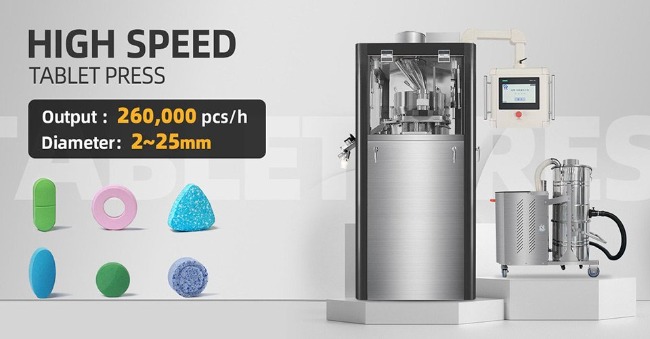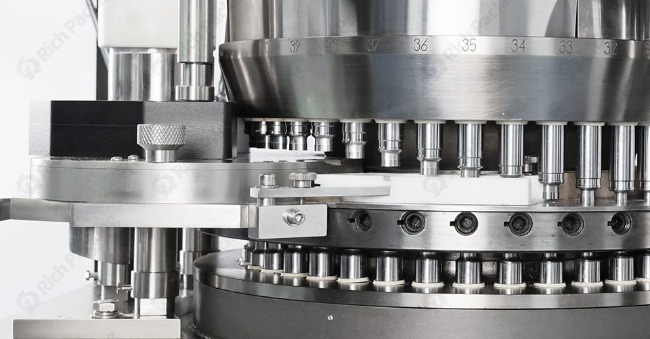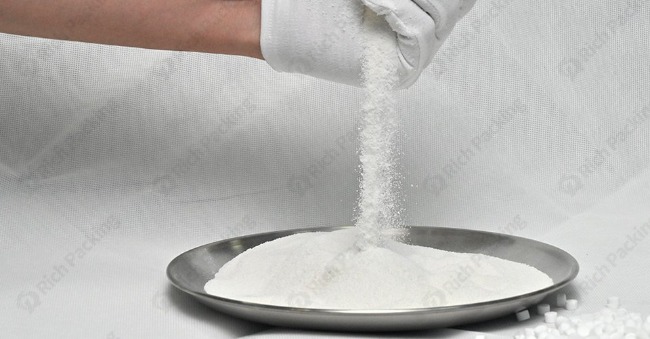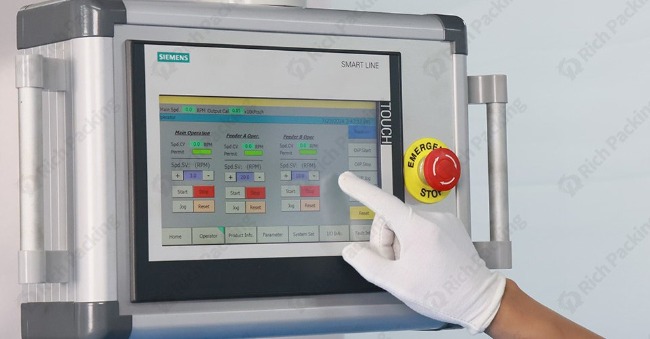Categories
New Blog
Tags
You understand that a well-maintained Tablet Press is essential for producing high-quality tablets consistently. As you review this guide, consider how various factors—from mechanical design to operator expertise—affect both the performance and service life of your tablet press machine. In this article, we will explore the technical, environmental, and procedural aspects that impact tablet press operation. Our goal is to provide you with actionable insights that help you optimize your equipment, ensuring reliable production and extended service life.

Tablet Press machines compress powder blends into solid tablets through precise mechanical action. The process involves feeding, filling, compression, and ejection, which must be carefully coordinated for consistent quality. You should focus on parameters like compression force, dwell time, and material flow. Variations in these factors can lead to quality issues and reduced equipment longevity. As you integrate advanced control systems and IoT sensors, you can monitor these parameters in real time, ensuring your tablet press operates within optimal ranges. This proactive management is critical for both production efficiency and prolonged machine service life.
The mechanical design of your Tablet Press is a fundamental factor that determines its operational efficiency and service life. A robust design ensures even distribution of compression force and reduces mechanical stress on components. High-quality materials in dies, punches, and frames help withstand continuous operation. When you invest in a well-engineered tablet press machine, you reduce the likelihood of premature wear and extend its service life.
Using premium, wear-resistant materials is essential. Components made from hardened steel or high-grade alloys maintain their precision over extended periods. Poor material quality leads to faster degradation, increased downtime, and higher maintenance costs. As you assess your equipment, consider the material specifications provided by the manufacturer. Reliable materials contribute directly to the machine's overall longevity and consistent performance.
Your tablet press’s performance relies heavily on proper calibration of compression force and dwell time. These parameters determine tablet hardness, weight consistency, and overall quality. If the force is too low, tablets may be weak and friable; too high, and you risk capping or lamination. Dwell time must be optimized to allow sufficient time for powder binding without causing over-compression. Regular calibration using precise control systems is essential for maintaining these settings within target ranges, thereby ensuring stable operation and extending the machine’s service life.
High-speed operation can boost production output, but it may also introduce stress on mechanical components if not properly managed. You need to balance speed with quality. Short cycle times require faster transitions and precise control to avoid errors. Automated systems and real-time monitoring can help you fine-tune these parameters, ensuring that speed does not compromise product integrity or machine durability.

Implementing a robust preventative maintenance program is key to prolonging the service life of your Tablet Press. Regular inspections, cleaning, and adjustments help catch potential issues before they escalate. Daily, weekly, and monthly maintenance schedules ensure that all moving parts, such as dies, punches, and feeders, remain in optimal condition.
Using IoT sensors and data analytics, you can predict when components are likely to fail. Predictive maintenance allows you to schedule repairs during planned downtime rather than experiencing unexpected breakdowns. This approach minimizes disruptions and extends the overall service life of your tablet press machine.
Environmental conditions play a significant role in the normal operation of your Tablet Press. Excessive humidity can lead to powder clumping, while extreme temperatures may affect both the machine and the formulation. Maintaining a controlled environment in your production facility is crucial. Consider installing climate control systems that regulate temperature and humidity. Consistent environmental conditions reduce wear and tear on the machine and ensure consistent product quality.
Operating in a clean environment minimizes the risk of contamination and reduces the buildup of dust on mechanical components. Dust and debris can cause blockages and interfere with sensor readings, leading to errors in operation. Regular cleaning and the use of dust extraction systems are important to maintain the operational integrity of your tablet press.
Proper lubrication is essential for reducing friction between moving parts, which in turn decreases wear and tear. Without adequate lubrication, components such as bearings, gears, and moving shafts can experience increased friction, leading to overheating and premature failure. You should use high-quality lubricants that are compatible with your machine’s materials and operating conditions.
Regularly monitor the wear on critical components. Use wear sensors and conduct periodic inspections to identify parts that need replacement. Replacing worn components proactively prevents unexpected downtime and extends the machine's service life. Keeping detailed maintenance logs helps you track the performance of your tablet press over time and plan for necessary upgrades or replacements.
A well-trained workforce is vital for the smooth operation of your Tablet Press. Operators must understand the machine’s settings, recognize early signs of malfunction, and know how to perform routine maintenance. Regular training sessions, workshops, and on-the-job learning help ensure that your team can operate the equipment efficiently and troubleshoot problems before they escalate.
Develop clear and detailed SOPs that guide every aspect of tablet press operation. These procedures should cover machine setup, calibration, routine maintenance, and emergency troubleshooting. Adherence to SOPs ensures consistency and minimizes the risk of operator error, which is critical for maintaining high production quality and prolonging the service life of your equipment.
The quality of the raw materials you use has a direct effect on the operation of your Tablet Press. Uniform particle size, proper moisture content, and consistent blend properties are essential for smooth filling and compression. High-quality raw materials reduce the likelihood of blockages and ensure that tablets are formed with consistent weight and hardness.
Work closely with your raw material suppliers to ensure that the materials meet your stringent specifications. Regular quality audits and testing help maintain consistency and reliability. Investing in high-quality materials not only improves the final product but also reduces stress on the tablet press machine, thereby extending its service life.

Increasing production throughput without compromising quality is a key goal for any pharmaceutical operation. You can optimize throughput by adjusting machine settings and minimizing downtime. High-speed tablet presses are designed to operate continuously, but efficient scheduling and process optimization are necessary to maximize output.
Cycle time—the duration of a complete operation cycle—must be carefully managed. Shorter cycle times increase output but can also lead to mechanical stress if not balanced with proper maintenance and calibration. Use real-time monitoring to adjust cycle times and ensure that the machine operates efficiently without overloading its components.
Modern Tablet Press machines are increasingly integrated with IoT and automation technologies. These advancements allow you to monitor key performance indicators (KPIs) in real time, enabling predictive maintenance and dynamic adjustment of operating parameters. Automated systems reduce human error and increase consistency, resulting in higher production efficiency and extended service life.
Computerized control systems with user-friendly interfaces and data logging capabilities are transforming tablet press operations. These systems allow you to adjust compression force, dwell time, and cycle speed with precision. Integration with cloud-based analytics provides actionable insights that help you optimize machine settings and predict maintenance needs.
Newer tablet presses feature modular designs that allow you to customize your production line according to specific needs. This flexibility enables quick changeovers between different formulations and reduces downtime during maintenance. Modular systems also facilitate upgrades, ensuring that your equipment remains state-of-the-art without the need for complete replacement.
Real-world examples provide valuable insights into how different factors affect the operation and service life of a Tablet Press. Consider the following case studies:
A pharmaceutical manufacturer implemented a strict preventative maintenance schedule for its tablet press. By calibrating the machine daily and using predictive maintenance software, they reduced downtime by 20% and extended the service life by 15%. This case study highlights the critical role of regular maintenance in optimizing performance.
Another facility improved its production consistency by installing climate control systems. Controlling temperature and humidity reduced material clumping and improved tablet quality. As a result, production throughput increased by 18%, and the service life of the machine was extended due to reduced mechanical stress.
| With Regular Maintenance | Without Regular Maintenance | |
|---|---|---|
| Downtime | 5% of production time | 15% of production time |
| Production Throughput | 12,000 capsules/hour | 8,000 capsules/hour |
| Machine Service Life | Extended by 15% | Reduced due to frequent failures |
| Quality Consistency | High, minimal variability |
This comparison illustrates how proper maintenance directly impacts production efficiency and equipment longevity.
| Controlled Environment | Uncontrolled Environment | |
|---|---|---|
| Moisture Impact | Minimal, stable production | High, leads to material clumping |
| Temperature Fluctuation | Consistent, reduces wear | Variable, increases mechanical stress |
| Product Quality | High consistency | Greater variability, more defects |
| Equipment Longevity | Extended due to reduced stress |
These tables provide you with clear evidence that investing in proper maintenance and environmental controls significantly improves the normal operation and service life of your tablet press.
To ensure that your Tablet Press remains reliable and efficient, you should implement best practices that encompass all aspects of its operation:
Create detailed Standard Operating Procedures (SOPs) for machine setup, operation, and maintenance. Clear documentation helps reduce errors and ensures consistent operation across shifts.
Regular training for operators is essential. Keep your team updated on the latest techniques, technological advancements, and troubleshooting methods. Skilled operators can detect early signs of wear and adjust settings to optimize performance.
Schedule regular maintenance and use predictive maintenance tools to identify potential issues before they cause downtime. A proactive maintenance strategy not only prolongs the service life of your tablet press but also enhances production consistency.
Use data analytics to track key performance metrics such as compression force, dwell time, and cycle speed. Continuously analyze this data to make adjustments that improve efficiency and reduce wear on the machine.
Ensure that the raw materials you use are of high quality. Consistent particle size, controlled moisture content, and uniform blend properties all contribute to smoother operation and less stress on the equipment.
Your Tablet Press is part of a broader manufacturing ecosystem. Effective integration with upstream and downstream processes is essential for maximizing overall efficiency.
Integration Comparison Table:
| Key Considerations | Benefits | |
|---|---|---|
| Upstream (Material Prep) | Consistent blending, granulation, sieving | Uniform tablet quality, reduced machine stress |
| Downstream (Packaging) | Automated coating, labeling, logistics |
This table helps you visualize how proper integration across your production line enhances overall performance and prolongs equipment service life.

Staying abreast of technological innovations is essential for your long-term success. New advancements continuously shape the future of Tablet Press operation.
These trends not only improve efficiency but also prepare your production line for future market demands.
To implement the insights shared in this guide, consider these actionable recommendations:
By following these recommendations, you will enhance the reliability and efficiency of your tablet press, ultimately extending its service life and boosting production output.
Investing in the optimal operation of your Tablet Press offers significant economic benefits. Consider the following aspects:
Economic Impact Table:
| Pre-Optimization | Post-Optimization | |
|---|---|---|
| Production Throughput | 8,000 tablets/hour | 11,000 tablets/hour |
| Downtime | 10% of production time | 4% of production time |
| Material Waste | 5% | 2% |
| Energy Consumption | 10 kWh/cycle | 7 kWh/cycle |
| ROI | Moderate |
This table provides a snapshot of how optimizing your tablet press operation translates into economic gains.
As you target the European and American pharmaceutical markets, ensuring compliance with international standards is crucial. Your Tablet Press must meet stringent GMP, FDA, and EMA guidelines, which are critical for market acceptance and consumer safety.
High-quality tablet production, achieved through optimized equipment operation, enhances your brand reputation. Customers value consistency, reliability, and safety—factors that set you apart in a competitive market.
Market Strategy Table:
| Requirements | Benefits | |
|---|---|---|
| Regulatory Compliance | GMP, FDA, EMA adherence | Improved audit results, reduced compliance risks |
| Quality Assurance | Automated, data-driven systems | Consistent product quality, increased customer trust |
| Market Competitiveness | High throughput, low defect rates |
This table helps you align your production strategy with global market requirements, ensuring long-term success.
Understanding the factors affecting the normal operation and service life of your Tablet Press is vital for maximizing efficiency and ensuring consistent, high-quality tablet production. By focusing on mechanical design, proper maintenance, optimized operating parameters, and technological integration, you can significantly extend your equipment’s lifespan and boost production output. For further inquiries or personalized consultation, please contact us today.